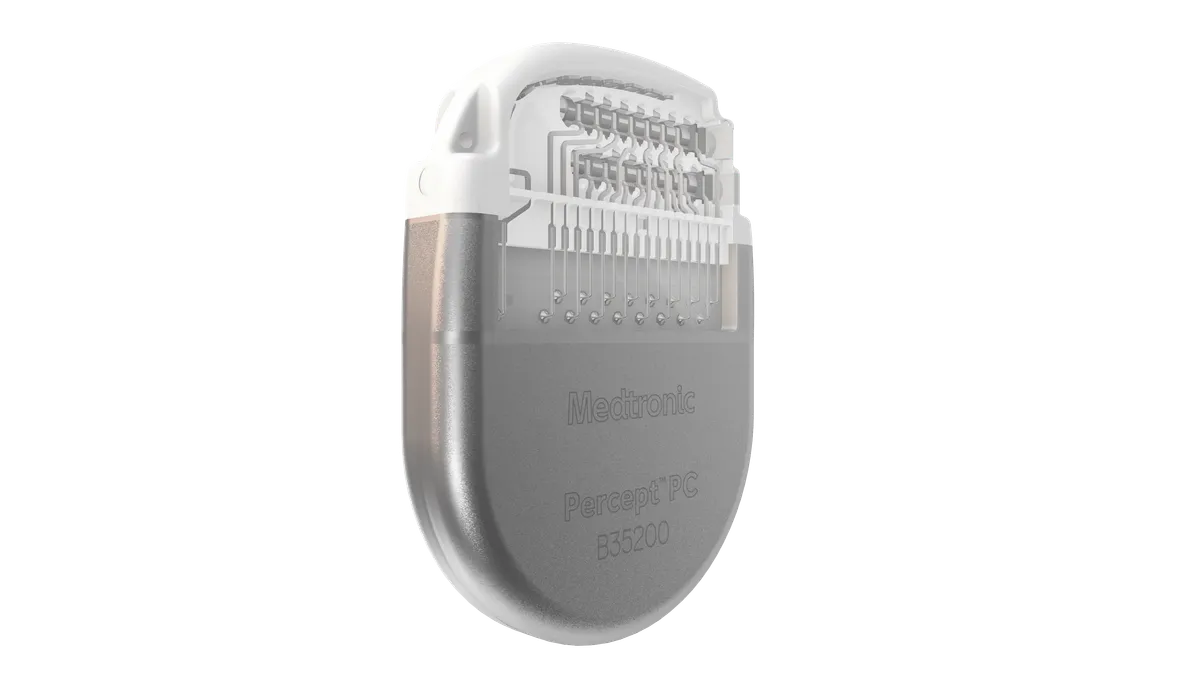Dive Brief:
- Medtronic received Food and Drug Administration approval for the BrainSense Adaptive deep brain stimulation (DBS) device for people with Parkinson’s disease, a movement disorder of the nervous system.
- The adaptive BrainSense device self-adjusts therapy to a person’s brain activity, minimizing the need for manual adjustments. The approval was the first of an adaptive DBS device for Parkinson’s, Medtronic said in a Monday announcement.
- Medtronic claims the launch of the system will be the largest ever commercial rollout of a brain-computer interface technology.
Dive Insight:
Medtronic’s DBS system uses an implanted neurostimulator to transmit electrical signals to areas of the brain affected by neurological disorders, similar to a pacemaker for the heart.
The BrainSense Adaptive technology is an enhancement to Medtronic’s Percept DBS neurostimulators. The advancement personalizes therapy based on a patient's brain activity in real-time. Therapy automatically adjusts, which minimizes the need for patients to manually change the level of stimulation to control symptoms.
Medtronic’s Percept devices have been used in more than 40,000 patients worldwide.
Brett Wall, president of Medtronic's neuroscience portfolio, said the innovation represents a “new era” in Parkinson's care with the ability to offer personalized neuromodulation therapy at scale. In development for a decade, the sensing-enabled system detects, captures and classifies brain signals.
Medtronic reported “mid-teens” global sales growth in its brain modulation business in the fiscal third quarter, driven by adoption of the Percept DBS systems.
CEO Geoff Martha, on the Feb. 18 earnings call, said the company expects the launch of the adaptive BrainSense technology to drive continued above-market growth for the brain modulation business in the quarters ahead.











